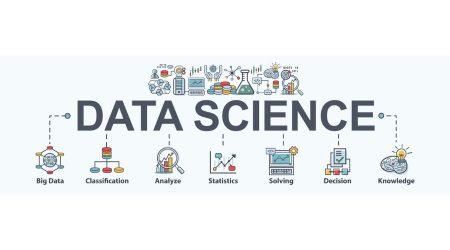Engineering courses are academic programs designed to equip students with the skills and knowledge necessary to design, create, and maintain various structures, machines, systems, and technologies. They are typically offered by universities and colleges and cover a wide range of disciplines including mechanical, electrical, civil, chemical, and aerospace engineering, among others. Engineering courses are highly interdisciplinary and draw on principles of mathematics, physics, chemistry, and computer science to develop innovative solutions to complex problems. They emphasize critical thinking, problem-solving, and practical skills, as well as the ability to work in teams and communicate effectively. Graduates of engineering courses are in high demand in various industries, including manufacturing, construction, transportation, energy, and technology. They are also sought after by research institutions, government agencies, and non-profit organizations. Engineering courses offer students the opportunity to make significant contributions to society by developing new technologies and advancing existing ones.
They are challenging and rewarding and provide a strong foundation for a successful career in a rapidly evolving and increasingly complex world. However, you can also check EdX Global for the best engineering courses.
List Of Engineering Courses:
Engineering is a vast field with many disciplines, and each discipline offers a variety of courses that cover different topics. However, you can also check software engineering courses, and courses for engineering. Here are some of the most popular engineering courses that students can pursue.
1. Mechanical Engineering
This branch of engineering deals with the design, development, and maintenance of mechanical systems. Mechanical engineering courses cover topics such as thermodynamics, materials science, fluid mechanics, and machine design. Students learn how to design and develop machines, tools, and systems for various industries, including manufacturing, energy, and transportation.
2. Electrical Engineering
Electrical engineering is concerned with the study and application of electricity, electronics, and electromagnetism. Electrical engineering course cover topics such as circuits and systems, control systems, power electronics, and communication systems. Graduates of electrical engineering programs are in high demand in the electronics, telecommunications, and power industries.
3. Civil Engineering
This branch of engineering deals with the design, construction, and maintenance of infrastructure such as roads, bridges, buildings, and water supply systems. Civil engineering course cover topics such as structural analysis, geotechnical engineering, transportation engineering, and environmental engineering. Civil engineers play a critical role in shaping the physical environment of communities and ensuring their safety and well-being.
4. Chemical Engineering
Chemical engineering is the study of chemical processes and their applications. Chemical engineering course cover topics such as thermodynamics, reaction kinetics, transport phenomena, and process control. Graduates of chemical engineering programs work in industries such as pharmaceuticals, energy, and chemicals, developing and improving processes for the production of goods and materials.
5. Aerospace Engineering
Aerospace engineering is concerned with the design and development of aircraft, spacecraft, and related technologies. Aerospace engineering course cover topics such as aerodynamics, propulsion systems, materials science, and control systems. Graduates of aerospace engineering programs are in high demand in the aerospace industry, working on projects such as space exploration, satellite development, and commercial aviation.
6. Computer Engineering
Computer engineering is the study of computer hardware and software and their integration with other systems. Computer engineering course cover topics such as computer architecture, operating systems, algorithms, and programming languages. Graduates of computer engineering programs work in a variety of industries, including software development, telecommunications, and gaming.
7. Biomedical Engineering
Biomedical engineering is concerned with the application of engineering principles to healthcare and medicine. Biomedical engineering course cover topics such as biomechanics, medical imaging, biomaterials, and tissue engineering. Graduates of biomedical engineering programs work in industries such as medical device development, pharmaceuticals, and research institutions.
8. Environmental Engineering
Environmental engineering is concerned with the protection and preservation of the environment. Environmental engineering course cover topics such as water and air pollution control, waste management, and environmental law and policy. Graduates of environmental engineering programs work in industries such as government agencies, consulting firms, and non-profit organizations.
9. Materials Engineering
Materials engineering is the study of the properties and behavior of materials and their applications in various industries. Materials engineering course cover topics such as materials science, metallurgy, ceramics, and polymers. Graduates of materials engineering programs work in industries such as aerospace, automotive, and electronics, developing and improving materials for various applications.
Engineering Courses On EdX Global
edX is a global online learning platform that offers a variety of engineering course from top universities and institutions around the world. These courses cover a wide range of disciplines within engineering, including mechanical, electrical, civil, chemical, and computer engineering. The edX engineering course provides students with an opportunity to learn from world-renowned experts in the field, and to develop their skills and knowledge through interactive and engaging online learning experiences. The courses are designed to be accessible to learners of all levels, from beginners to advanced professionals, and offer flexible learning options that allow students to study at their own pace and on their own schedule. Some of the benefits of taking engineering course on edX include the ability to earn professional certificates and credentials, connect with a global community of learners and professionals, and gain practical skills that can be applied in real-world settings. Whether you are looking to advance your career, explore a new field, or simply pursue your passion for engineering, edX offers a range of high-quality courses that can help you achieve your goals.
Conclusion
In conclusion, engineering is a diverse and dynamic field that offers a wide range of courses covering different topics. Each discipline has its own unique focus and offers opportunities for students to develop their skills and knowledge in a variety of areas. Graduates of engineering programs are in high demand in various industries and have the potential to make significant contributions to society through the development of innovative technologies and solutions to complex problems. Moreover, you can also check findwyse for more such engineering courses.


















